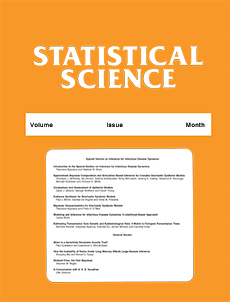Abstract
The generalizability of empirical findings to new environments, settings or populations, often called “external validity,” is essential in most scientific explorations. This paper treats a particular problem of generalizability, called “transportability,” defined as a license to transfer causal effects learned in experimental studies to a new population, in which only observational studies can be conducted. We introduce a formal representation called “selection diagrams” for expressing knowledge about differences and commonalities between populations of interest and, using this representation, we reduce questions of transportability to symbolic derivations in the do-calculus. This reduction yields graph-based procedures for deciding, prior to observing any data, whether causal effects in the target population can be inferred from experimental findings in the study population. When the answer is affirmative, the procedures identify what experimental and observational findings need be obtained from the two populations, and how they can be combined to ensure bias-free transport.
Citation
Judea Pearl. Elias Bareinboim. "External Validity: From Do-Calculus to Transportability Across Populations." Statist. Sci. 29 (4) 579 - 595, November 2014. https://doi.org/10.1214/14-STS486
Information





